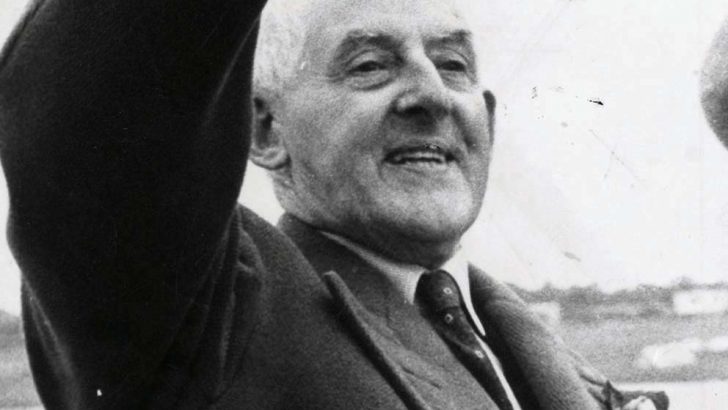Frank Duff, the indefatigable founder of the Legion of Mary was a man ahead of his time. What he founded in Dublin a century ago – September 7, 1921 – quickly became the largest international association ever to come out of Ireland.
Mr Duff had a two-fold vision for the Legion of Mary. On the one hand, the spiritual growth and development of members of the legion was vital. At the same time, this would go hand-in-hand with a commitment to be actively apostolic, alert to the many challenges afflicting Ireland at the time – not least of which was the crippling material poverty – and roll up their sleeves to tackle them.
Members of the Legion of Mary have been doing so quietly now for a century. Often the work goes unnoticed since it is with the people who society would either rather forget or else blame them for their own misfortune.
Frank Duff saw every single person, regardless of where they found themselves in life, as precious children made in God’s image and likeness.
For him and the members of the Legion of Mary, Christ’s words: “in so far as you did this to one of the least of these brothers and sisters of mine, you did it to me” (Matthew 25:40).
Shame
While we now look back in shame as a people about the ill-treatment meted out to unmarried mothers for decades in Ireland, Frank Duff and the legionaries went against the prevailing mood of the time and helped unmarried mothers to keep their babies. The legion’s approach was not one or narrow judgementalism of condemnation, but sought to be the loving presence of God in concrete situations.
Frank Duff’s vision was of a group of committed laypeople who actively sought out the rejected and the neglected and befriended them and witnessed to their unique dignity.
At the weekend, Archbishop of Dublin Dermot Farrell described Frank Duff as “prophetic in the true Christian sense of that word: someone sensitive to the call of God and utterly dedicated to God’s will”.
Frank Duff was articulating the idea of the ‘universal call to holiness’ of all believers decades before it was formulated by the Second Vatican Council in Lumen gentium (1964).
He himself had attended Vatican II as an observer at the invitation of Pope St Paul VI and prioritised the importance of the call to laypeople to live the Gospel in everyday life and therein find holiness. In that sense, he stands as a model of robust lay leadership in the Church.
For all of its outward greatness, he was also acutely aware of the deficiencies of the institutional Church and the failure to nourish people with sound material that would aid their spiritual growth. This is one of the reasons why a key apostolate of the Legion of Mary became the distribution of The Irish Catholic. He felt passionately that every Catholic home should have a Catholic newspaper to read. He also knew well that a lack of faith formation and a lack of clerical trust in lay leadership existed in the Church.
In the 1950’s Catholic Ireland seemed secure and strong but Frank Duff saw things differently. He wrote in relation to those years: “religion has become routine…a terrible conservatism exercises sway…an inert laity is only two generations removed from non-practice, non-practice is only two generations away from non-belief.”
Prophetic? Without question. But, Frank Duff was also not a pessimist and we must resist the temptation to give in to pessimism or fatalism.
Vision
Part of the vision of the universal call to holiness that Pope Francis is setting before us today is the synodal process where laypeople, priests, religious and bishops set out on the journey together listening attentively to the Word of God for our time.
We could do a lot worse than adopting Frank Duff – that great champion of the mission of our Baptism – as a patron as the Church in Ireland embarks on a synodal process eventually leading to a national synod.
Speaking about the synodal process at the Vatican on Tuesday Cardinal Mario Grech – the man responsible for shepherding it – warned that a synod is not a parliament. Without the Holy Spirit, he insisted, a synod becomes a “game of sides,” and the participation of the “holy people of God” would become an “opinion poll.”
Frank Duff’s model of authentic lay leadership at the service of the Gospel is a wonderful antidote to the divisiveness of those who want to to see battle lines drawn.


 Michael Kelly
Michael Kelly Frank Duff who died in 1980
Frank Duff who died in 1980 